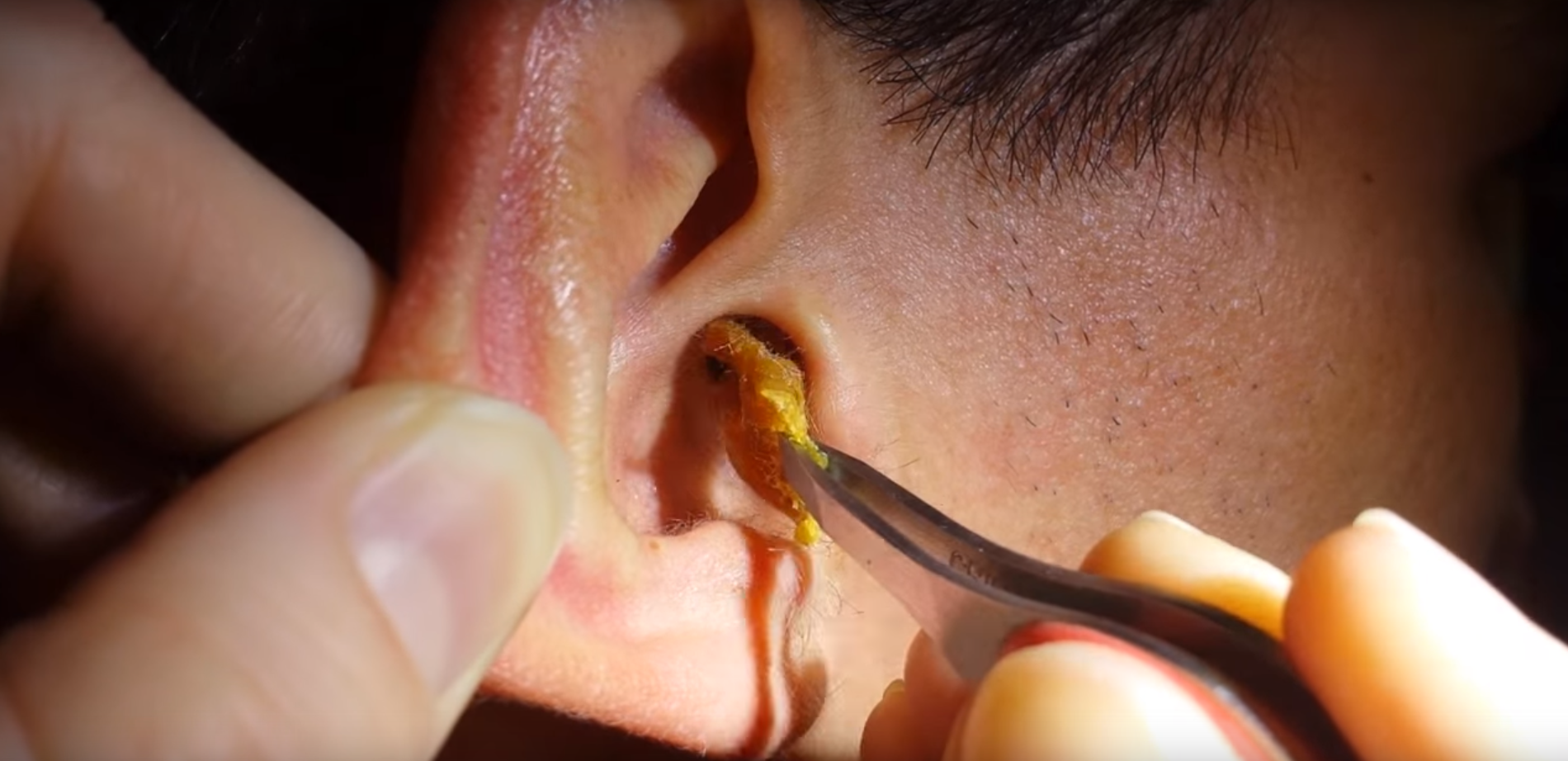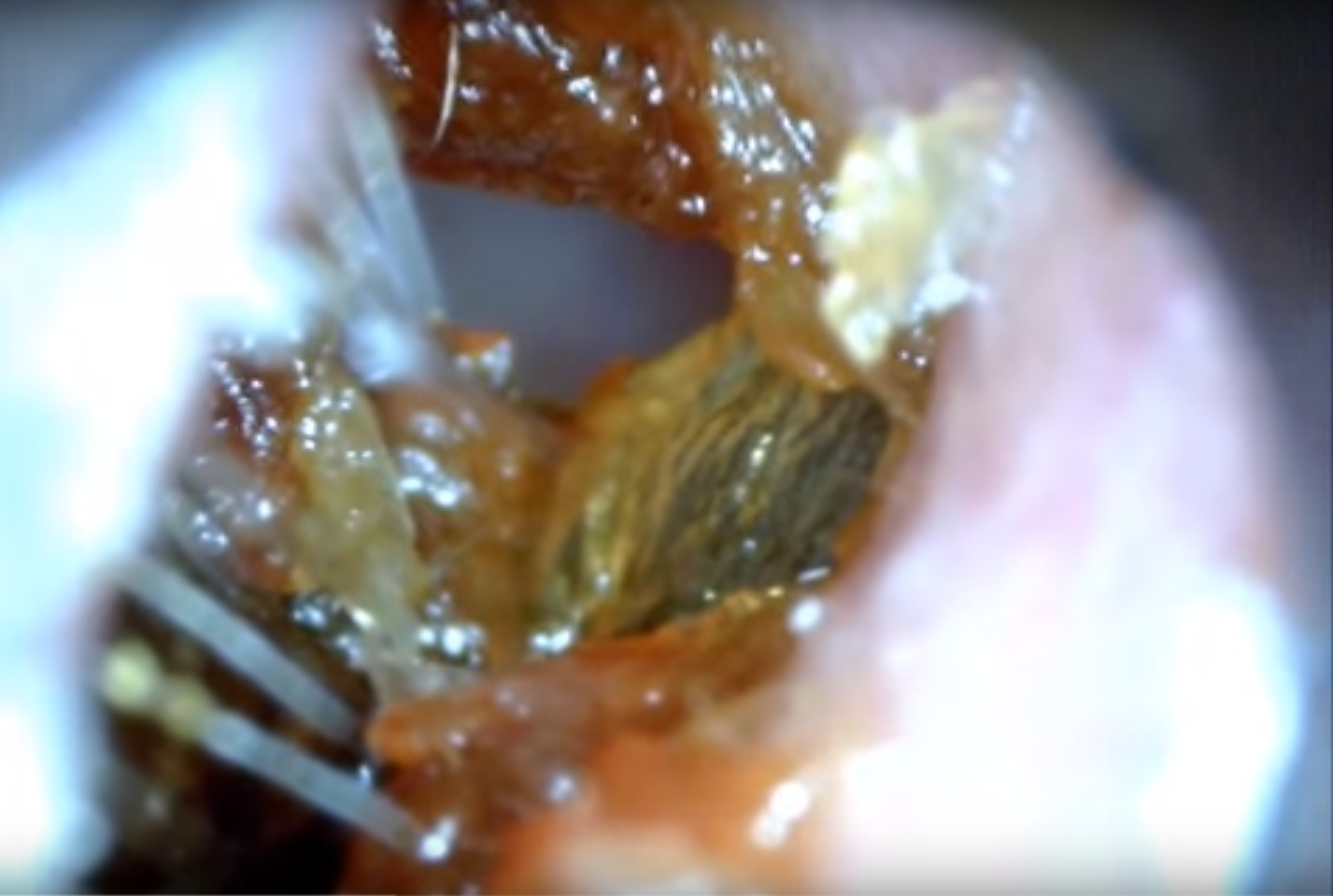Here's What Happens When You Don't Clean out Your Earwax

By:
From a young age we're taught to clean out our ears. After all, it's a sign of personal hygiene, right? But you might actually want to put the Q-tips down. Experts say that removing your body's earwax or cerumen — the yellowish wax packed in your ear — could actually cause more harm to your body than good.
 YouTube/Kyle Davis - youtube.com
YouTube/Kyle Davis - youtube.com
 YouTube/Nick Chitty - youtube.com
YouTube/Nick Chitty - youtube.com
Earwax is like your ears' personal cleaning service.
It's a self-cleaning agent produced in the outer one-third of the ear canal that lubricates and protects the ear. Also, it's not really wax. It's a water-soluble mixture of secretions, hair and dead skin. Sounds gross but it's completely necessary for it to remain in your ear in order to protect your ear from dryness and bacteria.
Related: What Happens When You Stop Bathing
Dale Tylor, M.D., a pediatric and general otolaryngologist at Washington Township Medical Foundation, told the Huffington Post that "earwax also holds antibiotic and antifugal properties, and too much cleaning can lead to ear and skin complications down the road, from ear infections to eczema in the outer ear."
There are primarily two types of earwax.
Do you have dry, flaky earwax or the wet and gooey type? The answer can be determined by your ethnicity.
In 2006, Japanese scientists identified the gene that controls earwax consistency called ATP-binding cassette C11. They discovered that the wet form of earwax is common among people with African and European ancestry, while the dry form is more common among people with ancestry in Southern and Central Asia according to the New York Times.
According to LiveScience "wet earwax is believed to have uses in insect trapping, self-cleaning, and prevention of dryness in the external auditory canal of the ear. It also produces an odor and causes sweating, which may play a role as a pheromone."
Researchers found that many East Asians have a mutation that prevents them from producing the wet type of cerumen. However, experts believe that the mutation could have originally been an evolutionary adaption that allowed East Asians to fit their climate, according to Live Science.
If it's an emergency, remove your earwax.
You shouldn't have to feel inclined to clean your ears because your body works to naturally remove its own earwax. For instance, when we speak and eat the earwax is constantly pushed towards the outer ear by the natural movement of our lower jaw, which helps to keep our ears clean.
Using Q-tips or any other probing instrument that enters the ear canal can be counterproductive. Q-tips tend to push the earwax deeper into the ear and closer to the eardrum, which can lead to trauma and temporary deafness.
The American Academy of Otolaryngology-Head and Neck Surgery Foundation recommends that you should only remove your earwax under a few circumstances.
- Earache, fullness in the ear, or a sensation the ear is plugged
- Partial hearing loss
- Tinnitus, ringing, or noises in the ear
- Itching, odor, or discharge
- Coughing
